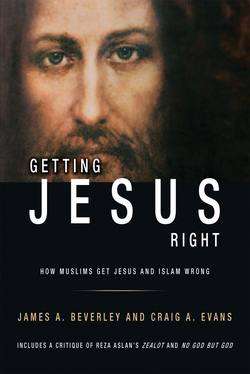Читать книгу Getting Jesus Right: How Muslims Get Jesus and Islam Wrong - James A Beverley - Страница 21
На сайте Литреса книга снята с продажи.
Messiah and Son of God
ОглавлениеProbably the biggest debate relating to Christian origins and theology centers on the question of who Jesus really was (and is). This debate centers on the question of how Jesus understood himself. Did Jesus understand himself as the Messiah? Did he think of himself in divine terms?
The first question can be answered by appeal to the crucifixion of Jesus as “king of the Jews,” which is acknowledged by all four New Testament Gospels (Matt 27:37; Mark 15:26; Luke 23:38; John 19:19) and in an indirect way by Paul (Rom 1:3–4, NKJV: “born of the seed of David”; cf. 2 Tim 2:8). The execution of Jesus as Israel’s king almost certainly implies that Jesus had allowed, even encouraged, his followers to regard him as Israel’s anointed king. In Roman eyes, of course, the Jewish Messiah is the equivalent of what Rome preferred to call “king of the Jews.” Accordingly, the first question is not especially difficult. We’ll pursue it further in chapter 12.
The second question is much more difficult to answer: Did Jesus think of himself in divine terms? Part of the problem stems from the Jewish religious culture, in which modesty is expected: “Are you he who is to come?” “Go and tell John what you hear and see.” “Are you the Messiah?” “You have said so.” These questions and their respective answers are examples of this modesty. As a rule, Jesus does not provide an explicit answer. He does not tell his disciples that he is the Messiah; he asks them their opinion (Mark 8:27–29). He does not say “yes” to the messengers of John; rather, he tells them to go back and report to John what they have observed (Matt 11:2–6).1
The second question is especially difficult in reference to Jesus, because he and his disciples were devout Jews and as such were strict monotheists. But if they were monotheists, in what sense could they have viewed Jesus as divine? Before we can answer that question we need to look at Jewish monotheism.2
